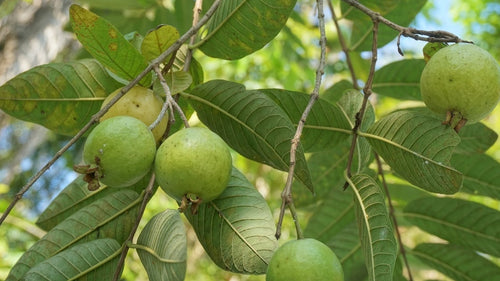Earth First: Choice Group’s Tribute to the Motherland
Founded in 1994, Choice Group has established itself as a trusted leader in the construction industry, renowned for combining cutting-edge technology Read more
Plantation Site Gallery
Project Update 3
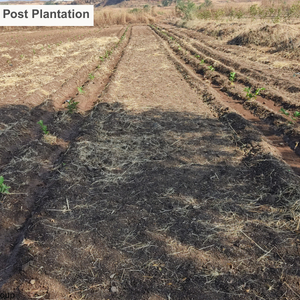
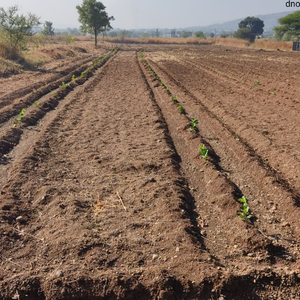
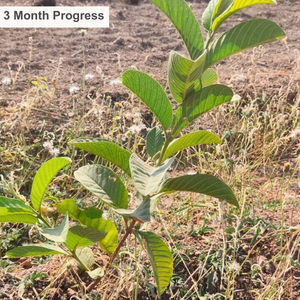
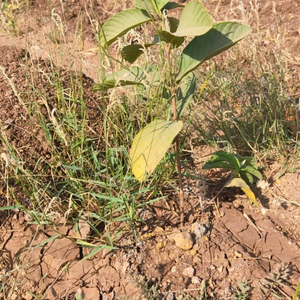
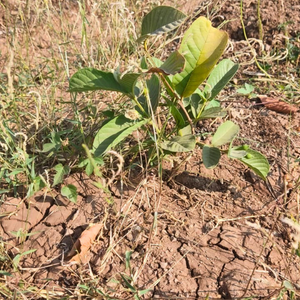
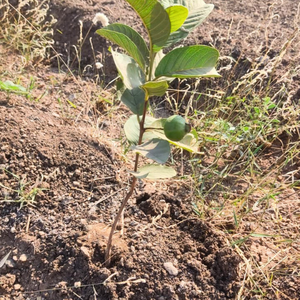
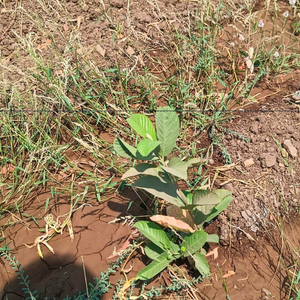
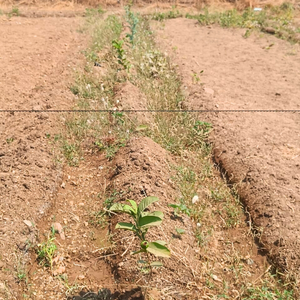
Project Update 2
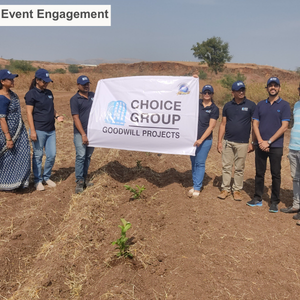
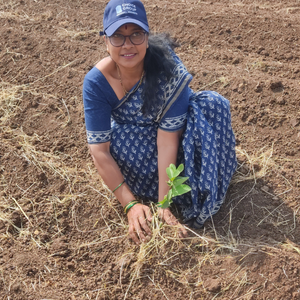
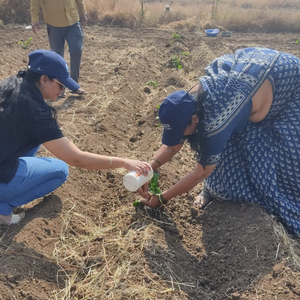
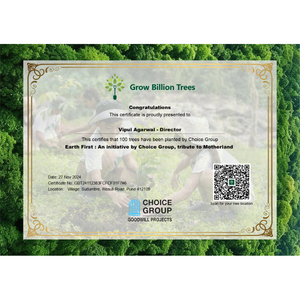
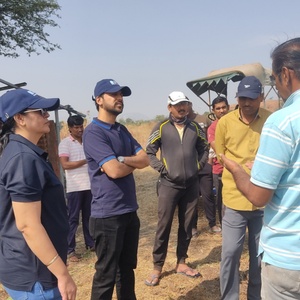
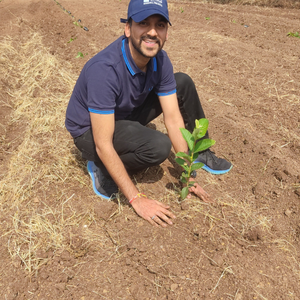
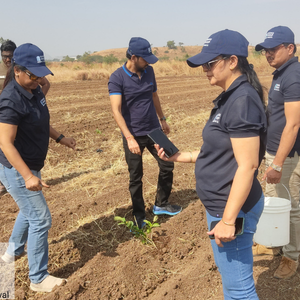
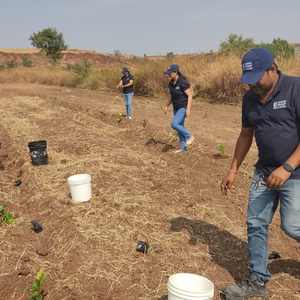
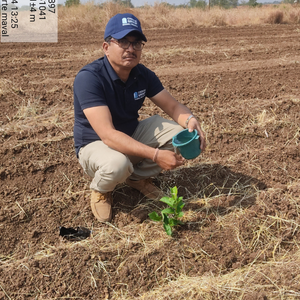
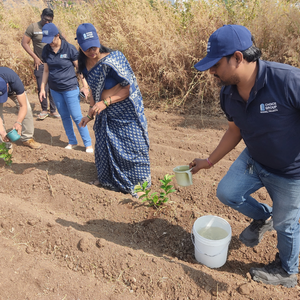
Project Update 1
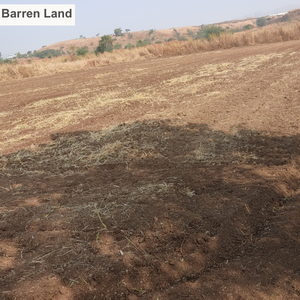
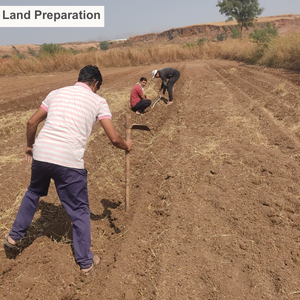

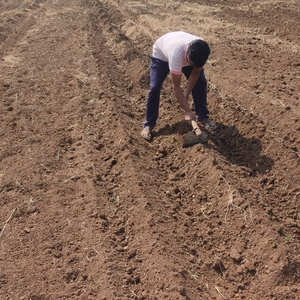
Digital Forest
Forest with 100 Trees planned
Want to plant your tree now?
Plant a Tree @ 299Trees Planted
Earth First: Choice Group’s Tribute to the Motherland
Through this green endeavor, Choice Group aspires to nurture the environment, mitigate climate change, and leave a legacy of sustainability for future generations, a testament to its philosophy of blending responsibility with innovation.
No of Trees: 100
Plantation Location: Sadumbre, Wasuli Rd, Maharashtra 412109
Plantation Date: 26th November 2024
Name of Species: Guava
Species Selection & Its Benefits:
The initiative prioritises the planting of native tree species, ensuring high survival rates and fostering long-term ecological stability. By aligning tree selection with local market demand, the project enhances environmental sustainability and provides farmers with viable income opportunities. Farmer consent and participation play a crucial role in species selection, ensuring that the chosen trees integrate seamlessly with existing agricultural practices.
The project strategically selected Guava (Psidium guajava) for plantation due to its multiple economic, ecological, and social benefits. This species is hardy and low-maintenance, providing a reliable income through its fruit while enriching soil fertility, reducing erosion, and creating a favourable microclimate for crops. This thoughtful selection supports both environmental sustainability and the economic stability of local communities. Additionally, the trees contribute to carbon sequestration, enhancing climate resilience while strengthening the region’s green cover. Their ability to thrive with minimal water input makes them well-suited for sustainable farming in the area.
Beneficiaries Details
|
SN |
Farmer Name |
Google Location |
Village Name |
Plot Size |
Guava Planted |
|
1 |
Santosh Tarte |
Sudumbre, Taluka Maval |
0.25 |
100 |
Planting Methodology and Its Advantages
Agroforestry: Choice Group’s agroforestry initiative follows a strategic planting methodology that integrates trees, crops, and livestock on the same land, providing farmers with additional income and improving livelihoods. By combining agriculture and forestry, it enhances soil fertility, conserves water, and increases biodiversity while offering multiple revenue streams through fruit plants. This method reduces climate risks, improves farm productivity, and ensures long-term economic stability for farmers, making it a viable solution for sustainable rural development.
As part of its Corporate Social Responsibility (CSR) initiatives, Choice Group embraces agroforestry as a key strategy for carbon sequestration, ecosystem restoration, and sustainable land management. This initiative underscores the company’s commitment to environmental stewardship, demonstrating a proactive approach to sustainability that contributes to a greener, more resilient future for generations to come. By adopting this integrated approach, Choice Group not only enhances environmental sustainability but also strengthens local communities by promoting long-term economic stability for farmers, ensuring a balanced coexistence of agriculture and forestry.
Advantages of Agroforestry
-
Increased Farmer Incomes: This approach helps in increasing the farmer’s income by as much as 3 times. Farmers benefit from diversified income sources, lifting economic resilience.
-
Sustainable Livelihoods: Farmers benefit from diversified income sources through the sale of fruits and other tree-based products, reducing dependence on a single crop.
-
Enhanced Biodiversity: Agroforestry creates a diverse ecosystem by integrating trees with crops, attracting pollinators, birds, and beneficial insects that support natural pest control.
-
Environmental Sustainability: This model reduces carbon emissions and promotes sustainable land management, aligning with SDG 13 (Climate Action) and SDG 15 (Life on Land).
-
Food Security & Nutritional Benefits: Fruit-bearing trees provide a direct source of food, improving local nutrition while supporting long-term agricultural productivity.
-
Carbon Sequestration & Climate Resilience: Trees absorb carbon dioxide, helping mitigate climate change while providing shade and windbreaks that reduce temperature extremes and improve microclimatic conditions.
- Soil Health and Water Conservation: Tree roots prevent soil erosion, enhance water retention, and improve soil fertility by fixing nitrogen and adding organic matter. Agroforestry systems also support groundwater recharge, reduce runoff, and improve soil moisture retention, making them ideal for drought-prone regions.
Activities During Tree Plantation
The plantation activities at Sudumbre, Wasuli Rd, Maharashtra 412109, were thoughtfully planned and executed, taking into account optimal soil conditions, local climate suitability, and the selection of saplings that offer both ecological value and livelihood opportunities. The site was carefully prepared with designated planting zones, ensuring long-term sustainability and success of the project.
On the plantation day, Mr. Vipul Agarwal, Director of Choice Group, along with the employees, actively participated in the plantation drive. Their presence and hands-on involvement highlighted the company’s dedication to creating a meaningful environmental impact.
Post-plantation care, including regular watering and sapling protection, was immediately initiated to ensure a high survival rate and healthy growth of the 100 Guava saplings planted. This effort is expected to improve soil fertility, enhance groundwater recharge, and offer additional income to farmers through fruit production, thereby fostering a resilient and self-sustaining farming model.
Through this initiative, Choice Group demonstrates not only a commitment to green practices but also to empowering local communities and driving positive change. By investing in nature-based solutions and forming strategic partnerships, the company continues to lead impactful sustainability efforts, building a greener, more inclusive future for all.
Conclusion Elements
Impact
Direct Impact
|
Parameters |
Values |
References |
|
No. of Trees Planted |
100 |
|
|
Green Cover (Acres) |
0.25 Acre |
|
|
Fruit Production Potential (Tons/Year) |
3 Tons |
|
|
Income Generation Potential (Rs/Year) |
60,000 |
|
|
Carbon Sequestration Potential (KG) |
20 |
Small to medium-sized trees can sequester around 10–48 kilograms (22–106 pounds) of CO₂ annually. https://onetreeplanted.org/blogs/stories/how-much-co2-does-tree-absorb |
|
Carbon Sequestration by 100 mature trees ( Tons/year) |
2 Tons |
No. of Trees x Carbon Sequestration by 1 mature tree per year |
|
Carbon Credit Equivalent |
2 |
One carbon credit is equivalent to one tonne of carbon dioxide or the equivalent amount of another greenhouse gas. |
|
Carbon Footprint of an avg Indian Citizen (Tons/Year) |
1.8 |
|
|
Offsets Annual Carbon Footprint of (Adults) |
1 |
Carbon offset by 100 mature trees per year / Carbon Footprint of an avg Indian Citizen per year |
* This impact analysis is forward-looking (An Agro-forestry project matures in 3-5 years)
Indirect Impact
Community Impact
-
Empowerment of Farmers - By providing training and resources for sustainable farming practices, agroforestry equips farmers with skills to enhance productivity and adapt to environmental changes.
-
Food Security – By integrating fruit-bearing trees into agricultural systems, the initiative ensures a stable food supply, providing nutritious produce for both consumption and market sale.
-
Environmental Awareness – The project educates the local community on the importance of tree planting, biodiversity conservation, and sustainable land use.
-
Enhanced Social Equity- Agroforestry initiatives foster enhanced social equity by empowering marginalized farmers with sustainable livelihoods, bridging economic gaps, and promoting inclusive community participation in environmental conservation efforts.
-
Resilience to Climate Change – Agroforestry improves soil health, enhances water retention, and reduces land degradation, making farming communities more adaptable to changing climate conditions.
- Health and Well-being – Increased green cover improves air quality, reduces heat stress, and provides access to nutrient-rich fruits, contributing to the overall health of local communities.
Environmental Impact
-
Carbon Sequestration – The trees absorb atmospheric carbon dioxide, contributing to climate change mitigation and reducing greenhouse gas emissions.
-
Soil Health Improvement – Tree roots help prevent soil erosion, enhance organic matter content, and improve soil fertility, promoting sustainable agriculture.
-
Biodiversity Enhancement – The plantation increases green cover and provides habitat for local wildlife, supporting a thriving ecosystem.
-
Water Conservation – Tree canopies reduce water evaporation, while roots enhance groundwater recharge, improving long-term water availability.
-
Microclimate Regulation – Increased vegetation helps moderate temperatures, reduce heat stress, and create a favourable environment for agriculture and human settlements.
- Air Quality Improvement – The trees act as natural air filters, absorbing pollutants and increasing oxygen levels, contributing to a healthier environment.
Achievements
SDG Goals Achieved through Agroforestry
-
SDG 1: No Poverty – By integrating agroforestry with traditional farming practices, Choice Group’s initiative supports farmers like Santosh Tarte with additional income through fruit yields, improving economic resilience and helping reduce poverty in rural areas.
-
SDG 2: Zero Hunger – The plantation of fruit-bearing Guava trees enhances food security by offering nutritional produce, while also enriching soil health and promoting sustainable agricultural productivity.
-
SDG 3: Good Health and Well-Being – Tree plantations contribute to cleaner air, improved soil fertility, and better water conservation, thereby creating a healthier environment for local communities. The greenery also supports mental well-being and a better quality of life.
-
SDG 4: Quality Education – The initiative includes farmer engagement and training in sustainable land-use practices. These educational efforts empower farmers with knowledge of agroforestry, climate resilience, and eco-conscious resource management.
-
SDG 6: Clean Water and Sanitation – Through improved soil structure and vegetation cover, the plantation helps reduce erosion, enhances groundwater recharge, and supports sustainable water management.
-
SDG 8: Decent Work and Economic Growth – The project generates rural employment, promotes sustainable agroforestry practices, and supports long-term economic growth by increasing the productivity of agricultural lands.
-
SDG 9: Industry, Innovation, and Infrastructure – Choice Group incorporates innovative agroforestry models, focusing on ecological design, soil regeneration, and land-use optimisation, fostering sustainable development and rural transformation.
-
SDG 10: Reduced Inequalities – By engaging small landholder farmers and ensuring community participation, the project promotes inclusive growth and equitable access to the environmental and economic benefits of agroforestry.
-
SDG 12: Responsible Consumption and Production – The project encourages reduced reliance on chemical inputs, promotes organic farming practices, and supports the sustainable use of natural resources, enhancing long-term agricultural viability.
-
SDG 13: Climate Action – The planted Guava trees act as carbon sinks, sequestering CO₂ from the atmosphere, improving microclimates, and building resilience against the adverse effects of climate change.
-
SDG 15: Life on Land – The initiative contributes to biodiversity conservation, improves habitat quality, and supports ecological restoration, aligning with global efforts to protect, restore, and promote sustainable land ecosystems.
-
SDG 17: Partnerships for the Goals – The collaboration between Choice Group, Grow Billion Trees, and local farmers showcases the impact of cross-sector partnerships in advancing shared environmental and social goals through community-based green initiatives.
ESG Achieved through Agroforestry:
-
Environmental Impact: Choice Group’s agroforestry initiative significantly contributes to environmental sustainability by promoting carbon sequestration, enhancing biodiversity, and improving soil and water conservation. The plantation of Guava trees, a fruit-bearing species well-suited to the region, aids in climate change mitigation by capturing atmospheric carbon dioxide and strengthening ecosystem resilience. This green effort helps prevent soil erosion, supports groundwater recharge, and contributes to a healthier, greener landscape. By integrating sustainable agroforestry practices with traditional farming, the initiative fosters a self-sustaining ecosystem that benefits both the environment and the livelihoods of local farmers, ensuring long-term ecological and social impact.
-
Social Impact: Choice Group’s agroforestry initiative delivers significant social benefits by promoting sustainable livelihoods, food security, and community well-being. The integration of Guava trees provides farmers, including Santosh Tarte, with diversified income sources, ensuring greater economic stability and resilience for rural households. By optimising land use efficiency, the initiative enhances agricultural productivity while maintaining ecological balance. Additionally, the plantation improves air quality, creates green spaces that contribute to community well-being, and fosters local engagement through awareness programmes. By educating and empowering farmers with sustainable land management practices, the initiative strengthens long-term environmental and social sustainability, benefiting both the region and its people.
-
Governance Impact: Choice Group upholds strong governance principles by adhering to ethical and responsible corporate practices in sustainability. This agroforestry initiative is an integral part of the company’s Corporate Social Responsibility (CSR) strategy, ensuring transparency, accountability, and long-term impact. By collaborating with Grow Billion Trees, local farmers, and communities, Choice Group fosters strategic partnerships that promote environmental stewardship and responsible land management. The initiative underscores the company’s commitment to ESG (Environmental, Social, and Governance) principles, reinforcing its role as a leader in sustainability and social responsibility.
Building Communities
Choice Group’s agroforestry initiative goes beyond tree plantation—it strengthens rural communities by empowering farmers, fostering collaborations, and creating sustainable livelihoods. By integrating environmental stewardship with social impact, the project nurtures a sense of shared responsibility, driving long-term benefits for both people and the planet.
-
Empowering Farmers: Choice Group’s agroforestry initiative strengthens farmers’ economic stability by diversifying income sources and improving agricultural productivity. By integrating tree plantations with existing farmland, farmers benefit from enhanced soil fertility, better crop yields, and long-term financial gains. This initiative promotes self-sufficiency and long-term environmental stewardship, ensuring a sustainable future for both farmers and the ecosystem.
-
Fostering Partnerships: Collaboration is at the core of Choice Group’s plantation initiative, bringing together corporate, environmental, and community stakeholders. The partnership between Choice Group, Grow Billion Trees, and a local farmer created a strong foundation for sustainable development. By leveraging collective expertise and resources, this initiative ensures that environmental and social benefits extend beyond the immediate plantation, fostering long-term ecological and economic resilience.
-
Creating a Ripple Effect: The impact of this initiative goes beyond tree planting; it sets in motion a chain reaction of positive environmental and social change. By improving biodiversity, enhancing carbon sequestration, and promoting sustainable farming, the project contributes to a healthier ecosystem. Additionally, as more farmers adopt agroforestry practices, the region experiences long-term economic and environmental benefits, inspiring further community-driven conservation efforts.
This initiative proved that environmental sustainability thrives when rooted in community effort. It’s not just about planting trees—it’s about planting hope, collaboration, and a shared vision for a greener tomorrow.
Commitment by Grow Billion Trees
-
Ensuring Tree Survivability: GBT prioritizes native species, continuous monitoring, and soil health improvement using organic fertilizers. These efforts ensure sustainable growth and benefit the farmers and communities.
-
Transparency & Accountability: GBT provides detailed reports on tree growth, survival rates, and carbon benefits, using geo-fencing and regular updates to maintain transparency and effectiveness.
-
Sustainable Plantation Efforts: GBT implements projects that balance environmental, social, and economic goals, addressing urban heat islands and degraded farmlands. These efforts promote ecological balance, livelihoods, and long-term climate resilience.
-
Enhancing Ecosystem Health: By selecting native species and creating diverse habitats, GBT enhances biodiversity and ecosystem resilience, ensuring long-term ecological health and supporting wildlife.
-
Long-Term Impact: GBT’s initiatives tackle environmental challenges, enhance rural livelihoods, foster climate resilience, and promote sustainable development while reducing carbon footprints.
Acknowledgment
We extend our heartfelt gratitude for the successful completion of the plantation initiative at Sudumbre, Wasuli Rd, Maharashtra. This initiative marks a significant step towards environmental restoration, sustainable land use, and community empowerment. Its success would not have been possible without the collective efforts of dedicated individuals, local farmers, and partner organisations. Their unwavering commitment has played a crucial role in fostering a greener, more resilient ecosystem for future generations.
To Choice Group: We sincerely thank Choice Group for its unwavering dedication to sustainability and environmental conservation. By integrating agroforestry into its Corporate Social Responsibility (CSR) initiatives, Choice Group has demonstrated a strong commitment to fostering greener landscapes and empowering local communities. This effort will enhance biodiversity, improve soil health, and contribute to carbon sequestration, ensuring long-term ecological and economic benefits.
Moreover, by promoting sustainable land use, this initiative plays a vital role in supporting farmers, enhancing their livelihoods, and providing additional income opportunities through fruit production. Choice Group’s dedication to environmental sustainability and community upliftment is truly commendable, and we are grateful for its contribution to a greener, more resilient future.
To Mr. Santosh Tarte: Your dedication to embracing agroforestry and incorporating fruit-bearing trees into your farming practices is truly commendable. This initiative not only enriches soil health but also strengthens long-term agricultural sustainability. Your commitment to fostering a healthier ecosystem while securing a better future for future generations is inspiring. We are grateful to be part of this journey and look forward to witnessing the lasting positive impact of your efforts.
To Our Ground Partners and Volunteers: Your dedication, expertise, and passion for environmental conservation have been essential in making this initiative a success. Through our collective efforts, we have shown that collaboration and a shared vision for sustainability can create a lasting impact. Your invaluable contributions have played a crucial role in driving this mission forward, and we deeply appreciate your commitment. Thank you for being an integral part of this journey toward a greener future.
Through this collective effort, we have taken significant steps toward revitalizing ecosystems, promoting sustainable agriculture, and enhancing the livelihoods of farmers in Sudumbre. This is just the beginning, and we look forward to strengthening our partnership in pursuit of a greener, more sustainable future for all.
Thank you for your unwavering commitment and support.
Closing Remarks
The successful completion of the agroforestry plantation at Sudumbre, Wasuli Rd, Maharashtra 412109, marks a significant milestone in Choice Group’s journey towards environmental sustainability and community empowerment. This initiative has not only expanded the region’s green cover but has also provided long-term benefits to local farmers by integrating sustainable agricultural practices.
By enhancing soil fertility, supporting water conservation, and generating additional income through fruit production, the project strengthens livelihoods and promotes financial stability for farming communities. With 100 Guava trees now flourishing, this initiative will continue to contribute to ecological balance, biodiversity restoration, and climate resilience.
As we celebrate this achievement, we reaffirm our commitment to driving impactful sustainability efforts and inspiring more organisations and individuals to take action for the environment. We extend our deepest gratitude to Choice Group, the farmer of Sudumbre, our partners, and all those who contributed to making this project a success. Your dedication and collaboration have been instrumental in turning this vision into reality.
This is just the beginning of a larger movement towards a greener and more sustainable future. Through collective efforts, we can build a resilient environment and leave a lasting legacy for generations to come.
Trees for Corporates
Trending
Most Popular
1. Agroforestry Benefits
Agroforestry is a win-win for the environment and agriculture. By integrating trees with crops, it enhances biodiversity, improves soil health, and boosts water retention. Choice Group’s agroforest tree plantation initiative takes this to heart, ensuring that every tree planted serves a purpose, whether it’s providing shade, enhancing the ecosystem, or improving agricultural productivity. Not only does agroforestry help combat climate change by sequestering carbon, but it also supports local economies by offering diverse income streams like timber, fruits, and nuts. In other words, it’s not just a green initiative—it’s a profitable one for both the planet and the people involved!
2. Sustainable Forestry Practices
Sustainable forestry practices are the cornerstone of environmental responsibility, and Choice Group’s tree plantation initiative embraces these principles with open arms. The agroforest concept ensures that trees are planted and maintained with long-term sustainability in mind. This means reducing deforestation, preventing soil degradation, and promoting biodiversity—all while supporting the livelihoods of local farmers. It's not about cutting corners but about cultivating a future that’s as green as it is prosperous. With sustainable forestry practices, Choice Group isn’t just planting trees; they’re planting the seeds for a healthier, more sustainable tomorrow.
3. Soil Health Improvement
Good soil is the foundation of any thriving ecosystem, and in agroforestry, trees are the secret ingredient to boosting soil health. When trees are planted alongside crops, they enhance the soil’s organic matter, improve nutrient cycling, and prevent erosion. Choice Group’s tree plantation initiative in the agroforest concept is all about giving the land what it needs to flourish. By enriching the soil, not only do we see better crop yields, but we also ensure the land remains fertile for generations to come. In essence, healthy soil is the gift that keeps on giving—and Choice Group is planting the way forward.
4. Carbon Sequestration
It’s no secret that trees are the planet’s lungs, but did you know they’re also carbon vacuums? Through carbon sequestration, trees absorb carbon dioxide from the atmosphere, helping mitigate the effects of climate change. Choice Group’s agroforest initiative is a key player in this battle. By planting trees in an agroforestry system, the company is not only creating a lush, biodiverse environment but also helping to trap carbon and lower the overall carbon footprint. So, every tree planted isn't just a gift to the Earth—it's a weapon in the fight against global warming.
5. Local Community Empowerment
Choice Group’s agroforest tree plantation initiative goes beyond environmental impact—it’s also about empowering local communities. By working with farmers, providing them with sustainable practices, and creating income-generating opportunities, this initiative ensures that everyone benefits. Farmers can sell tree-based products such as timber, fruits, and resins, giving them a diversified income stream. This holistic approach not only helps restore the land but also uplifts the community. So, when you think of this initiative, imagine a win-win for both the environment and the people who depend on it.
6. Agroforestry and Biodiversity
In the world of farming, biodiversity is often overlooked, but not in the agroforest concept. By planting a variety of tree species alongside crops, biodiversity is enhanced, creating an ecosystem that supports a wide range of wildlife. Choice Group’s tree plantation initiative takes biodiversity seriously, ensuring that each planted tree contributes to a healthier and more resilient environment. The more diverse the ecosystem, the more robust it becomes, making it easier to weather environmental challenges. So, when you’re planting in an agroforest, you’re not just planting trees—you’re planting a future teeming with life.
7. Climate Change Mitigation
Climate change is one of the biggest challenges of our time, but Choice Group’s agroforest tree plantation initiative is making strides toward mitigation. By planting trees that sequester carbon and contribute to more sustainable land practices, the initiative helps reduce the carbon footprint of local communities and businesses. Trees help regulate local climates, cool the surrounding areas, and stabilize weather patterns. Every tree planted is a small but significant contribution to creating a more resilient, climate-smart future. It's a little green army fighting big, climate-related battles, and Choice Group is leading the charge.
8. Sustainable Agriculture
Sustainable agriculture is about finding ways to produce food without compromising the planet’s health. Agroforestry, as practiced by Choice Group in their tree plantation initiative, is a key player in this shift. By integrating trees into agricultural systems, farmers benefit from enhanced crop yields, reduced soil erosion, and better water retention. Choice Group’s initiative ensures that agriculture becomes more sustainable by improving productivity while maintaining the health of the land. It’s agriculture with a conscience, ensuring that the Earth remains fertile for future generations of farmers. So, the next time you hear sustainable agriculture, think of it as farming for the future, and Choice Group is leading the way.
FAQ
What is agroforestry, and how does Choice Group implement it?
Agroforestry is a sustainable land-use system that integrates trees and crops on the same land to improve biodiversity, soil health, and productivity. Choice Group implements agroforestry by planting trees alongside crops to create a balanced ecosystem. This approach boosts agricultural productivity, conserves natural resources, and enhances environmental sustainability. It not only benefits the land but also provides economic opportunities for local farmers, contributing to both ecological and community well-being.
How does Choice Group’s tree plantation initiative contribute to environmental sustainability?
Choice Group’s tree plantation initiative supports environmental sustainability by planting trees in agroforestry systems that promote biodiversity, improve soil health, and prevent erosion. The trees also act as carbon sinks, reducing greenhouse gases in the atmosphere and mitigating climate change. This initiative ensures that the land is used productively while maintaining ecological balance, contributing to long-term environmental health and resilience.
What are the benefits of tree plantation for farmers in agroforestry?
Agroforestry provides numerous benefits to farmers, including enhanced crop yields, improved soil fertility, and diversified income streams. By planting trees alongside crops, farmers benefit from the additional income from tree products such as fruits, timber, and medicinal plants. This method reduces dependency on a single crop, making farming more resilient to weather changes and market fluctuations, and supports sustainable agriculture practices.
How does Choice Group engage with local communities in its tree plantation efforts?
Choice Group actively engages with local communities by involving farmers in the plantation process. Farmers are trained in sustainable agroforestry practices, ensuring that they are equipped with the knowledge and skills to maintain the trees. This initiative creates job opportunities, supports local economies, and strengthens community ties, while empowering farmers with income-generating opportunities from tree-based products.
Why is biodiversity important in agroforestry, and how does it benefit the environment?
Biodiversity in agroforestry is vital as it helps maintain ecosystem stability and resilience. Diverse tree species support different wildlife, improve pollination, and protect the soil. By promoting biodiversity, agroforestry systems create a healthier environment that reduces the risk of pest infestations and improves water retention, making the land more productive and sustainable. Choice Group’s focus on biodiversity ensures a balanced ecosystem for future generations.
What are the long-term impacts of agroforestry on soil health?
Agroforestry has a positive long-term impact on soil health by preventing erosion, increasing organic matter, and improving nutrient cycling. Trees in agroforestry systems help to retain moisture, reduce the need for chemical fertilizers, and create more fertile soil. Over time, the soil becomes more resilient, leading to better crop yields and healthier ecosystems, ensuring sustainable land use for generations.
How does Choice Group’s tree plantation initiative support climate change mitigation?
Choice Group’s tree plantation initiative aids climate change mitigation by sequestering carbon through the trees planted in agroforestry systems. Trees absorb carbon dioxide from the atmosphere, reducing the carbon footprint. Additionally, the practice of agroforestry helps in soil carbon storage and prevents deforestation, contributing to the reduction of greenhouse gases and promoting a healthier climate for future generations.
How can individuals contribute to tree plantation efforts by Choice Group?
Individuals can contribute by supporting or volunteering in local tree plantation drives organized by Choice Group. By spreading awareness of the benefits of agroforestry and tree planting, individuals can encourage others to participate in creating greener, more sustainable communities. Additionally, people can donate or partner with the company in its efforts to scale the impact of its tree plantation initiatives.
What makes Choice Group’s agroforest approach different from traditional farming?
Choice Group’s agroforest approach differs from traditional farming by integrating trees into the farming system, promoting biodiversity, and improving the long-term health of the land. Unlike monoculture farming, agroforestry systems use a variety of plants and trees, which leads to better soil conservation, increased resilience to pests and diseases, and improved water management. This sustainable approach ensures that the land remains productive and healthy over time.
How does agroforestry improve water management in farming?
Agroforestry improves water management by enhancing soil structure, increasing water retention, and reducing surface runoff. The deep roots of trees help capture and store rainwater, ensuring that crops have a steady water supply even during dry periods. This reduces the need for irrigation, lowers water consumption, and promotes more efficient use of water resources in farming, making it a more sustainable option for farmers.
- Choosing a selection results in a full page refresh.
- Opens in a new window.


